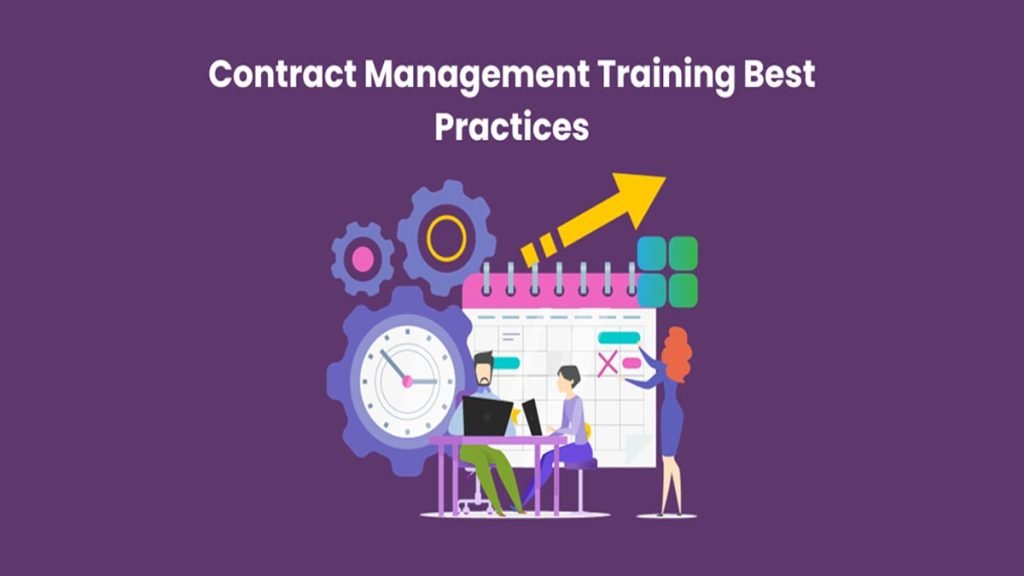As businesses grow, the number and intricacy of contracts increase significantly. Manually keeping track of these agreements turns into a laborious, prone-to-error task. The lack of a well-organised system frequently leads to missed deadlines, non-compliance problems, and even legal challenges, which cause losses in money and harm to reputations. A two-pronged approach is necessary to manage contracts effectively – utilising the Contract Management Course and Contract Management Software ,Together these potent instruments transform how businesses manage their contracts.
The blog posts that follow will cover the intricacies of contract management courses, their essential components, and how they combine with contract management software to create a harmonious and productive environment.
Table of Contents
Understanding Contract Management
Contract management entails the administration of contracts with customers, vendors, partners, or employees. It ensures that all parties’ obligations are met and that the terms of the agreement are followed. Understanding the nuances of contract formulation, negotiation, execution, and analysis is required for effective contract management.

Effective contract management is the foundation of successful business partnerships. It ensures that agreements are explicitly enforceable and Effective contract management is crucial for achieving organisational goals and minimising errors and risks. Legal risks, improve teamwork and contribute to the overall financial health of the organisation.
Benefits of Contract Management Training
Enhanced Efficiency and Accuracy
The improvement of accuracy and efficiency in the contract management process is one of the main advantages of contract management training. Professionals who receive training are better equipped with the information and abilities needed to precisely draft, review, and manage contracts. This reduces the possibility of mistakes, missing deadlines, and misunderstandings.
Improved Risk Management
Contract management training programmes often incorporate comprehensive risk management components. Participants learn how to identify, manage, and reduce contract risks, ensuring that organisations are well-prepared to deal with unanticipated issues.
Cost Savings and Financial Optimisation
Organisations can find chances for cost savings in their contracts with the use of contract management training. This entails settling on more favourable terms, eliminating needless fines, and streamlining payment plans.
Strengthening Vendor Relationships
Effective contract administration entails more than simply document management; it also entails relationship management. Training programmes emphasise the need for clear communication and collaboration, which can lead to better, more durable partnerships with vendors and partners.
Best Practices in Contract Management Training
Putting the following best practices into practice is crucial to guaranteeing the training programmes produce the best results possible:
Interactive Learning Approaches:
Use interactive teaching strategies to keep participants interested, such as role-playing games, seminars, and group debates. In addition to improving comprehension, interactive sessions promote active engagement, which makes learning more engaging and memorable. Real-life Case Studies and Simulations:
Experienced and Knowledgeable Instructors:
Make certain that training sessions are led by experienced instructors who are well-versed in contract management practices. Instructors with practical industry experience can provide useful insights, share relevant anecdotes, and effectively answer participants’ questions, enhancing the learning experience.
Collaborative Learning Environments:
Foster a collaborative learning atmosphere where participants can exchange ideas, share experiences, and learn from one another. Group activities and discussions create a sense of community, enabling participants to benefit from diverse perspectives and practical insights from their peers.
Practical Application Exercises:
Include practical exercises in which participants draught, reviewed, and negotiated contracts while being guided by instructors. These exercises provide participants with the opportunity to apply theoretical knowledge in a controlled environment, boosting their confidence and competence in contract management tasks.
Regular Assessments and Feedback:
To determine participants’ comprehension and advancement, conduct assessments on a regular basis. Give constructive criticism to assist participants in recognising their areas of strength and progress. Ongoing evaluation guarantees that students stay on course and successfully understand the material.
Emphasise Ethical Considerations:
Emphasise the ethical aspects of contract management, emphasising the significance of integrity, honesty, and transparency. Ethical considerations are critical in developing trust and maintaining strong business relationships, so they must be included in contract management training.
Practical Software Training:
Offer practical instruction on contract management software if appropriate. Introduce participants to the features of the software and show them how it improves collaboration, simplifies procedures, and yields insightful data. Participants in practical software training are guaranteed to be adept at using technology to manage contracts effectively.
Conclusion
By embracing both, you are not only mastering the complexities of contracts; you are also shaping a future in which your organisation thrives in the face of complexity, secure in the knowledge that every contract is an opportunity waiting to be maximised.


